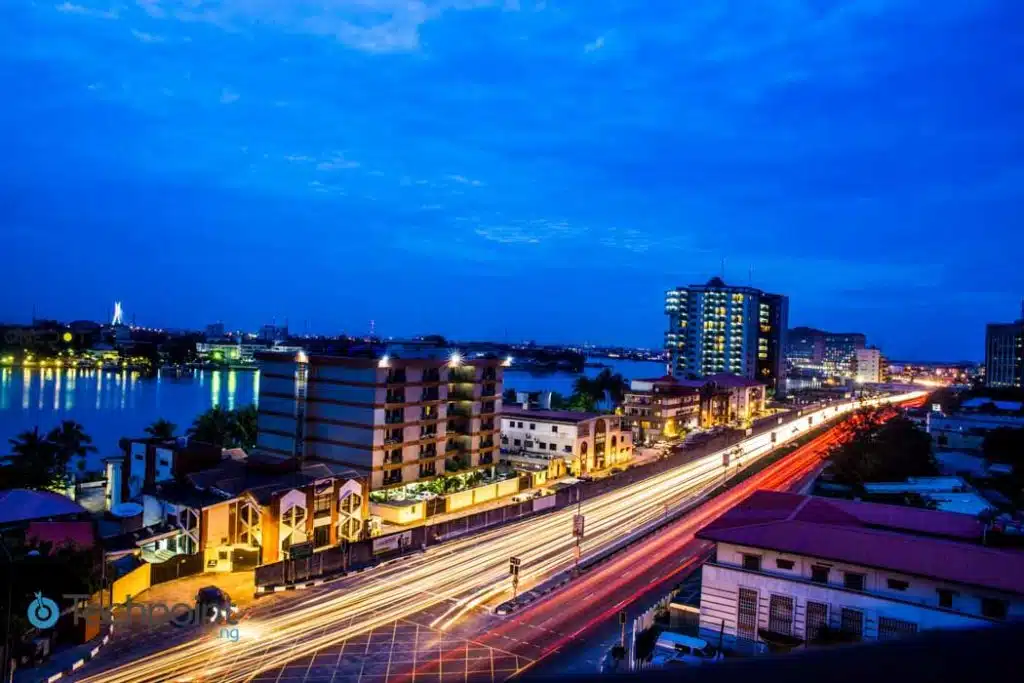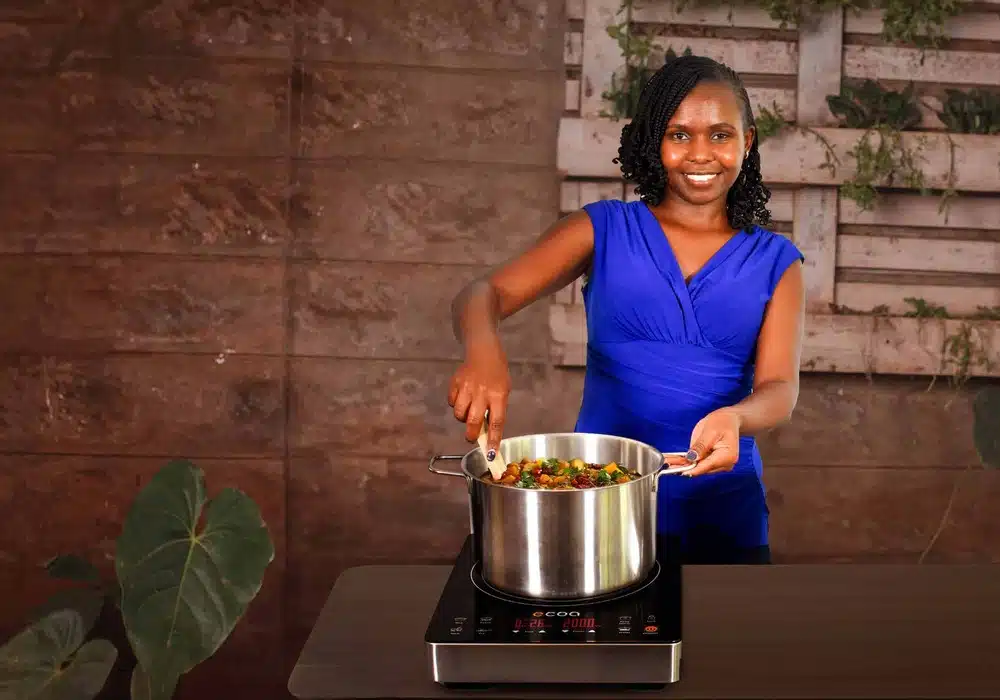Vitayu,
Victoria from Techpoint here,
Here’s what I’ve got for you today:
- BURN bags $80M to expand clean cookstoves in Africa
- Africa’s tech hype is real. So why the global blind spot?
- Tenants can now choose their ISP in Kenya
BURN bags $80M to expand clean cookstoves in Africa

Whenever I see BURN in the news — like when the clean cooking appliance manufacturer raised $12 million in April 2024 or $15 million investment in October of the same year — the only thing that comes to mind is, “Burn for me!” 😂 Whatever you think that means, it’s safe to say this Kenyan-born startup is on fire. And now, they’ve bagged another big one. Yeah, $80 million from the Trade and Development Bank Group (TDB Group) to scale operations in Mozambique, the Democratic Republic of the Congo (DRC), and Zambia.
This isn’t your regular funding story. The investment, a mix of debt and results-based financing (think “do well, get paid”), will help BURN bring clean cooking appliances to over 429,000 households in the three countries. These aren’t just any stoves either. They’re IoT-enabled and come with serious carbon credit potential, making them eco-friendly and economically smart.
According to BURN’s founder and CEO, Peter Scott, this is a “first of its kind” deal. The TDB Group is helping subsidise the cost of these stoves by banking on the future value of carbon credits they’ll generate. That’s finance talk for “save the planet now, get paid later.” It’s a clever way to make clean energy aff0rdable for families while still keeping investors happy.
The appliances, including BURN’s ECOA biomass and new induction cookstoves, are built to slash emissions, wipe out indoor air pollution, and cut fuel costs. Once fully deployed, they’re expected to benefit over 2.1 million people and prevent a whopping 3 million tonnes of CO₂ emissions. Isn’t that real impact and not just PR fluff?
World Bank’s incoming regional director, Erik Fernstrom, even called the deal “bold innovation” and a key step in closing the region’s energy access gap. He tied it into the broader Mission 300 initiative, which aims to help African entrepreneurs scale solutions that bring clean energy to everyone. In other words: big vision, bigger action.
Since its founding in 2011, BURN has sold over 5.4 million clean cooking stoves and now operates in 14 African countries with manufacturing bases in Kenya, Nigeria, Tanzania, and Malawi. With this latest cash injection, they’re gearing up to take their mission continent-wide, one household (and one carbon credit) at a time.

Victoria Fakiya – Senior Writer
Techpoint Digest
Stop struggling to find your tech career path
Discover in-demand tech skills and build a standout portfolio in this FREE 5-day email course
Africa’s tech hype is real. So why the global blind spot?

Africa’s tech scene is booming, but you wouldn’t know it if you looked at how the rest of the world still talks about it. From major VC deals to startups solving complex problems with limited resources, African innovation is thriving, yet global perception is lagging way behind.
A new report from Talking Drum Communications says it plainly: there’s a “perception dividend gap.” African startups are building game-changing solutions, but investors, policymakers, and even international media are still stuck on tired stereotypes. The result? Missed opportunities, underestimated value, and a distorted picture of what’s happening on the ground.
Even with success stories, million-dollar exits, investment rounds, and real impact, the continent is often seen through an outdated lens. McKinsey noted that global players tend to underestimate African markets, not because of performance, but due to limited visibility, patchy data, and long-held biases.
One of the biggest myths? That there’s “no infrastructure” to support tech innovation in Africa. While infrastructure challenges exist, startups on the continent have mastered the art of building in tough environments. Lean teams. Smart workarounds. Hyper-local solutions. That’s not a weakness, it’s a competitive advantage.
In fact, some global players are taking notes. African founders are designing products for resilience and scale from day one. As Maya Horgan Famodu of Ingressive For Good puts it, “They’re not stuck in old ways of thinking, they’re building solutions for the future.”
Still believe Africa is waiting for permission to innovate? Think again. It’s time the world caught up to the real story. Curious about more busted myths? Read Delight’s story to see how African founders are changing the narrative.
Tenants can now choose their ISP in Kenya

Did you know that in many Kenyan estates, tenants haven’t been allowed to choose their Internet provider for years? Yeah, if you lived in a gated community or apartment block, chances are your developer signed an exclusive deal with just one ISP, and you were stuck with them. Think slow speeds, high bills, and all. But that’s about to change.
The Competition Authority of Kenya (CAK) is putting an end to that monopoly madness. They’ve banned these exclusive contracts, saying they’ve made the Internet unnecessarily expensive and limited customer choice. Now, developers and estate managers have been told to open up access to all licensed Internet providers, so tenants can finally pick who they want.
This move is a big win for consumers. It means no more being held hostage by one provider just because that’s what your landowner chose. Want to ditch that overpriced service and switch to one with better speeds and friendlier support? You can. And the best part? Developers who try to block this could face up to KSh10 million in fines or even jail time.
It’s all part of a wider shift. Kenya’s new building code now treats the Internet like electricity or water, which is essential. New buildings are even required to have fibre ducts that can handle multiple providers. That way, even if one ISP installs the cables, they can’t shut out the competition.
And the market’s already changing. Safaricom still leads in fixed Internet, but challengers like Jamii Telecom, Zuku, Poa Internet, and even Starlink are gaining ground. Starlink alone grabbed more than 1% of the market in just a few months. With this new level playing field, more providers can finally get through the estate gates.
This policy also puts Kenya in line with countries like the UK, US, and South Africa, where exclusive ISP deals are already banned. For everyday Kenyans, it simply means this: you’ve got the power to choose your Internet. No more being forced into bad service. No more dead zones in the living room. Just freedom to surf the way you want.
In case you missed it
- Ghana’s policies are creating a sustainable environment for green tech companies
What I’m watching and reading
- Your Unhappy Brain Needs Some Assist
- What You NEED to Know About INFERTILITY in Your 20s
Opportunities
- MasterCard is recruiting a Head of Impact Labs. Apply here.
- Jumia is hiring a Chief Marketing Officer (Pipeline). Apply here.
- Sun King is looking for a Workforce Planning Analyst, Nigeria. Apply here.
- Building a startup can feel isolating, but with Equity Merchants CommunityConnect, you can network with fellow founders, experts, and investors, gaining valuable insights and exclusive resources to help you grow your business. Click here to join.
- Help us make Techpoint better for you! Your feedback shapes what comes next (your responses may potentially save my job. A bit dramatic, but still). It will only take 30 seconds to tell us what works and what doesn’t. Fill it here.
- To pitch your startup or product to a live audience, check out this link.
- Have any fresh products you’d like us to start selling? Check out this link here.
- Follow Techpoint Africa’s WhatsApp channel to stay on top of the latest trends and news in the African tech space here.
Have a fun weekend!
Victoria Fakiya for Techpoint Africa










